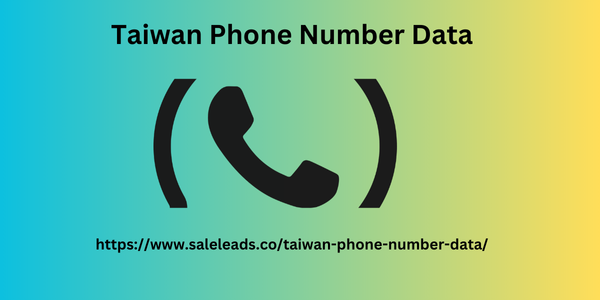|
|
In Taiwan, NGOs are essential in social services, advocacy, and community engagement. In that respect, specific regulations control the use of phone numbers by these organizations to guarantee transparency, accountability, and effective communication. Here's an overview of the key regulations and practices regarding phone numbers for NGOs in Taiwan.
1. Registration Requirements
An NGO should first register with the Ministry of the Interior or the relevant local authority before it can begin operation. Registration involves providing a valid telephone number as contact information for the organization. The telephone number provided should be public and accessible to all stakeholders and beneficiaries to ensure easy access to the NGO.
2. Transparency and Accountability
NGOs are expected to maintain transparency in their Taiwan Phone Number Data operations, including their communication channels. The phone number provided during registration must be actively monitored and answered during business hours. This allows the public to inquire about services, report issues, or seek assistance, reinforcing the organization’s accountability.
3. Opt-in Communication
When NGOs need to engage in outreach for fundraising or awareness, for instance, they must follow regulations concerning unsolicited communications. The NGOs should get the consent of the contactors before adding their telephone numbers to their mailing lists or sending promotional messages. This will be a good practice that coincides with Taiwan's Personal Data Protection Act to protect the privacy and personal information of individuals.

4. Emergency Contacts
For NGOs involved in emergency responses or crisis management, this requires them to have dedicated telephone lines. The emergency contact number should be updated periodically and always made available to the public. This enables timely communication during an emergency that would help their quick responses.
5. Collaboration with Telecommunication Providers
NGOs may, for instance, collaborate with local telecommunication providers to negotiate preferential rates or lines exclusively used by the NGOs. Indeed, some companies have discount services or packages for NGOs only, which may assist the organizations in controlling their costs of communication.
Conclusion
In a nutshell, NGOs in Taiwan have to follow certain regulations in terms of phone numbers so that they can be transparent, accountable, and communicate effectively. By maintaining accessible and compliant communication channels, these organizations can better serve their communities and fulfill their missions.
|
|